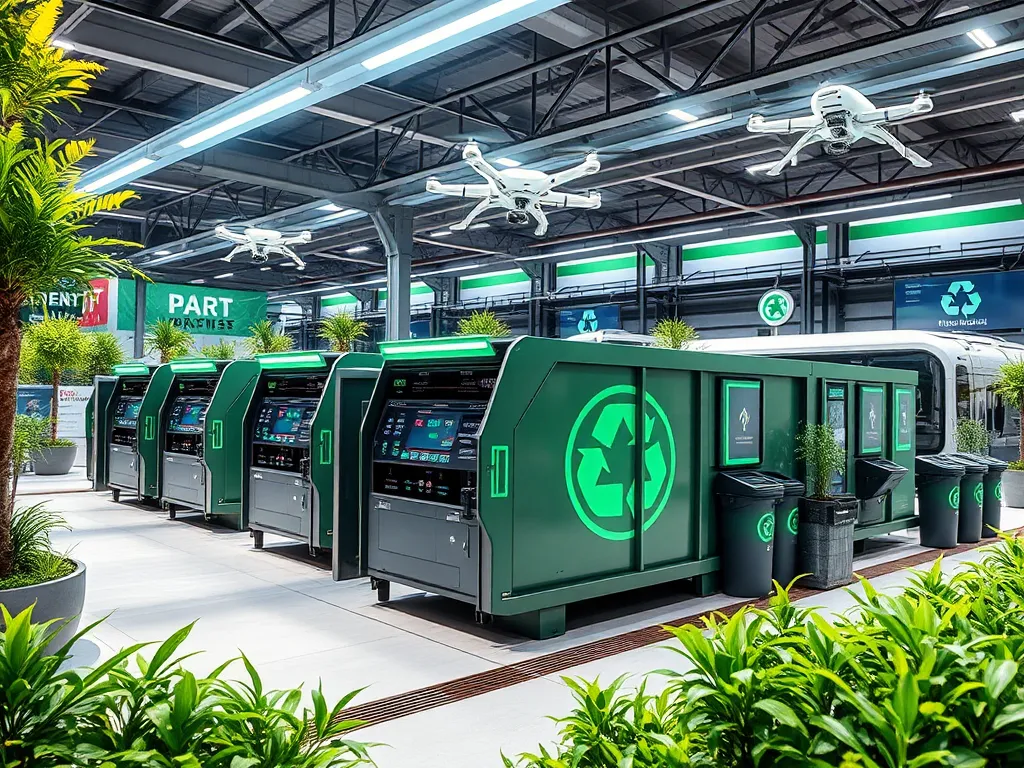Revolutionizing Dumpster Rental and Waste Removal Technology

Innovations in Dumpster Rental and Waste Removal Technology
The landscape of waste management is ever-evolving, driven by the need for efficiency and sustainability. Innovations in dumpster rental and waste removal technology are reshaping how waste is collected, processed, and disposed of. From smart trash bins to automated sorting systems, these developments not only enhance operational efficiency but also address growing environmental concerns.
One of the most significant changes in this industry is the advent of smart waste management solutions. By leveraging Internet of Things (IoT) technology, waste management companies can now deploy sensors in dumpsters to monitor fill levels in real time. This innovation allows for optimized collection routes and schedules, reducing fuel consumption and operational costs while minimizing the environmental impact of waste collection activities.
In addition to smart sensors, mobile applications have emerged as a game-changer in the dumpster rental process. Consumers can now book dumpsters directly via apps, manage their rentals, and receive notifications about pick-up times. This level of convenience not only saves time for users but also streamlines the logistics for service providers, improving overall service delivery.
Another fascinating trend is the implementation of automated waste sorting technologies. These systems use advanced machinery to sort recyclables from non-recyclable waste efficiently, thus increasing recycling rates and reducing the amount of waste sent to landfills. Automated sorting minimizes human error and enhances the overall effectiveness of waste management practices.
As society becomes more environmentally conscious, sustainable practices in waste removal are gaining momentum. Innovations in dumpster rental and waste removal technology are increasingly focusing on eco-friendly options, composting initiatives, and zero waste strategies that promote a circular economy. These practices not only align with global sustainability goals but are also becoming essential for attracting eco-conscious consumers.
Smart Waste Management Solutions
One of the forefront innovations in dumpster rental technology is the development of IoT-enabled dumpsters that allow for real-time tracking of waste levels. These smart dumpsters can communicate fill levels to waste management companies, ensuring timely pickups and preventing overflow, which can lead to unsightly and unhygienic conditions.
Mobile apps have made renting dumpsters a seamless experience for consumers. Users can find the right type and size of dumpster, view pricing options, and schedule rental and pick-up—all from the comfort of their smartphones. This technological advancement enhances user experience and increases engagement in waste management services.
Exploring the impact of Recent technological developments in waste management technology reveals innovative solutions for sustainable waste disposal.
Automated waste sorting technologies are revolutionizing the sorting process by utilizing optical sensors, AI, and robotics. These technologies can significantly improve recycling rates by accurately identifying and separating materials, helping to redirect waste towards appropriate processing streams, ultimately promoting sustainability.
Sustainable Practices in Waste Removal
Innovations in dumpster rental and waste removal technology have led to the creation of eco-friendly dumpster options made from recycled materials. These dumpsters not only reduce the carbon footprint of the industry but also offer consumers a responsible choice for waste disposal, catering to an increasingly eco-aware market.
Composting initiatives have become an integral part of waste management strategies. By providing compost bins as part of their services, companies can promote organic waste recycling and allow communities to participate in sustainable practices, reducing the volume of waste that ends up in landfills.
Zero waste strategies are gaining traction in waste management, where the focus is on reducing waste at the source, reusing materials, and recycling to the maximum extent. Companies adopting these strategies are using innovative technologies to facilitate the transition to a more sustainable waste management system, ultimately benefiting the environment and society at large.
Technological Advancements in Dumpster Design
Recent innovations in dumpster rental have led to the introduction of compact and space-saving dumpster designs. These dumpsters are particularly beneficial for urban areas where space is limited, allowing for efficient waste collection without taking up valuable real estate.
Durable materials have also been a focus of innovation in dumpster design, leading to longer-lasting bins that can withstand the rigors of daily use. This longevity not only reduces the overall cost of waste management for companies but also minimizes waste created by the disposal of damaged or unusable dumpsters.
Customizable dumpster sizes and features are becoming increasingly popular, allowing businesses and consumers to select options that fit their unique needs. This flexibility ensures that a wide range of waste types can be accommodated, promoting more effective waste management solutions.
Market Trends in Waste Removal Technology
One key trend in the waste removal industry is the growth of on-demand waste removal services. This trend is driven by consumer demand for convenience and instant service, with technology allowing users to book waste removal with just a few taps on their devices.
Traditional waste removal companies face numerous challenges, including increased competition from startups and the pressure to adopt new technologies. To remain relevant, they must innovate and integrate modern solutions to improve their services and maintain customer loyalty.
Emerging players in the waste tech industry are bringing fresh ideas and innovative technologies to the market. These companies often focus on sustainability and employ advanced technologies to streamline operations and reduce the environmental impact of waste management.
Regulatory Impact on Waste Management Technologies
Government regulations are increasingly promoting sustainable practices in waste management. These regulations often incentivize the adoption of eco-friendly technologies and encourage companies to innovate in their waste management practices to comply with new standards.
Legislation impacting dumpster rental services includes various local and national laws that dictate waste disposal methods and recycling mandates. These laws push companies to adopt innovative solutions, like enhanced sorting technology and sustainable materials, to avoid penalties and stay compliant.
Incentives for using innovative waste removal technologies can come in the form of tax breaks, grants, or subsidies offered by local governments. These incentives can ease the financial burden on companies looking to upgrade their waste management practices and invest in sustainable solutions.
